who’s got the ding?
I’m on the move again today, zooming in little by little on the weird thing that some have identified as being:
– a mountain,
– a molehill,
– a volcano crater,
– a HUGE hole.
Well, I guess we’ll see later on what it really is.
Today’s walk, even though it felt like there was just a tad of humidity left in my shoes, was really a stroll in the park:
I basically only moved between two overlapping settlements, Houma being the larger one of the two.
Houma used to be the capital of a certain kingdom of Jin 晋 a few thousand years ago, and there’s an interesting museum covering a few of the excavated relics.
One thing I remember from my Confucian studies back in München is this: those pre-imperial kingdoms would always be fighting over a certain three-legged caldron, ding 鼎.
It would go something like: Qin 秦 goes and kicks the asses of everyone in Zhao 赵 and steals their ding (basically the thing they use to boil their chowder), but then, while the Qin-people are partying, the Jin-army comes and slays them and gets hold of the ding and rejoices, until someone else comes and…
Okay, you can see I’m making this up, but anyways the ding used to be really important:
This one is of course just a model of an ancient ding – otherwise there would always be the danger that some evil country (like Germany?) could possibly come and steal it and boil their chowder in it for a great victory party.
Yep, the world is supposed to be small today:
“Big world 大世界” – I think that’s true. The world is not small, it’s still big.
And walking upon it just makes it seem humongous.
Houma isn’t too big at all though. Several people have confirmed me on the fact that this is the smallest town in all of China.
I think that’s an exaggeration. But still – whether or not it’s really the smallest – it sure ain’t big.
Apart from that, it’s a regular place where people do regular things.
They move:
They help themselves when nobody else is helping them:
They tear down old buildings and raise new ones:
And they have dreams:
…of beauty and prosperity, of family and virtue.
In Chinese it’s called xingfu 幸福, a term that I find rather difficult to translate into English.
xing 幸 can stand for “luck”, and fu 福 can mean “happiness”.
It feels good to say it when I get asked a certain kind of question:
“Walking must feel very exhausting 走路很辛苦吧?”
“Happy, not exhausting. 幸福,不辛苦。”

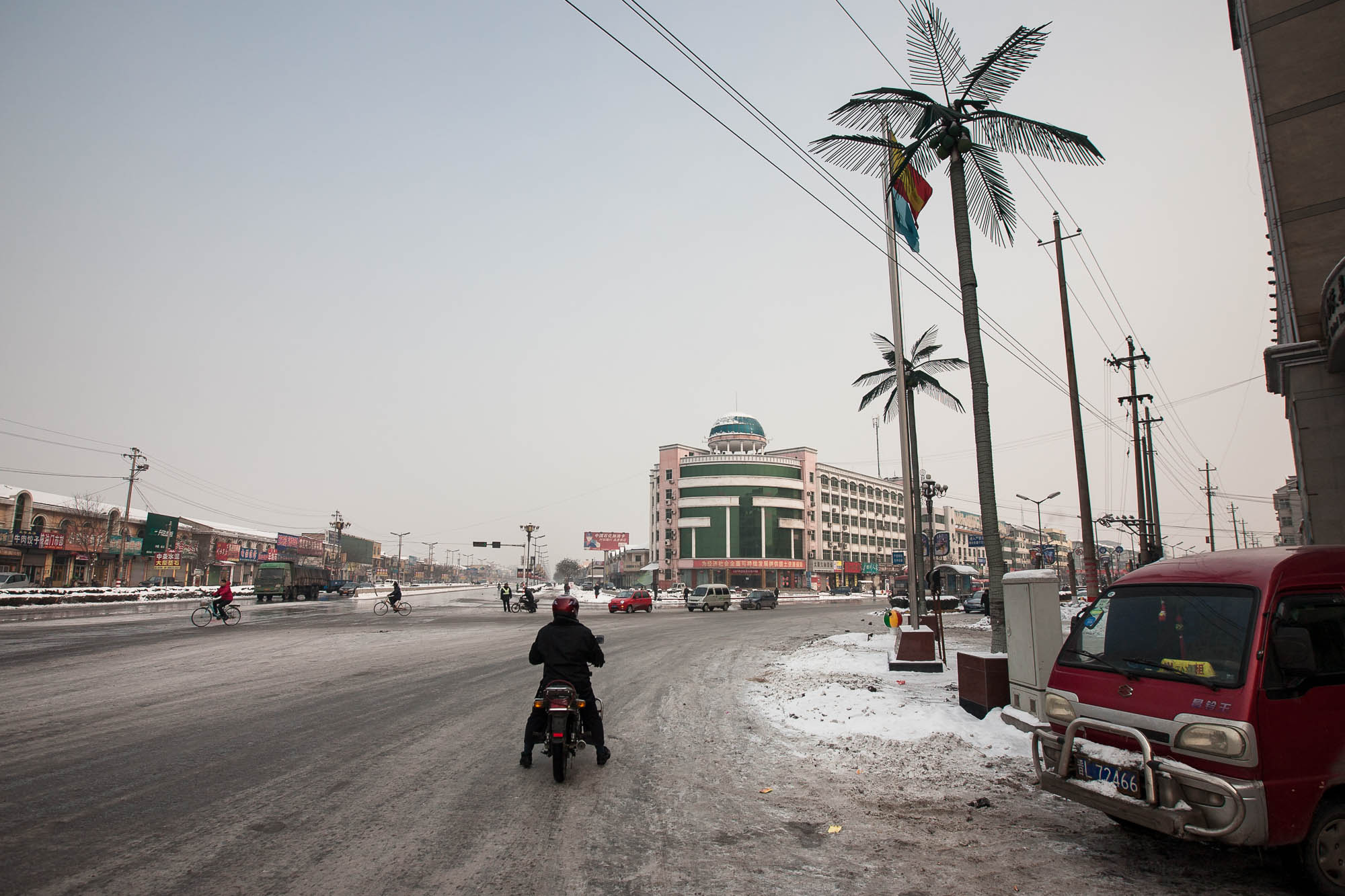
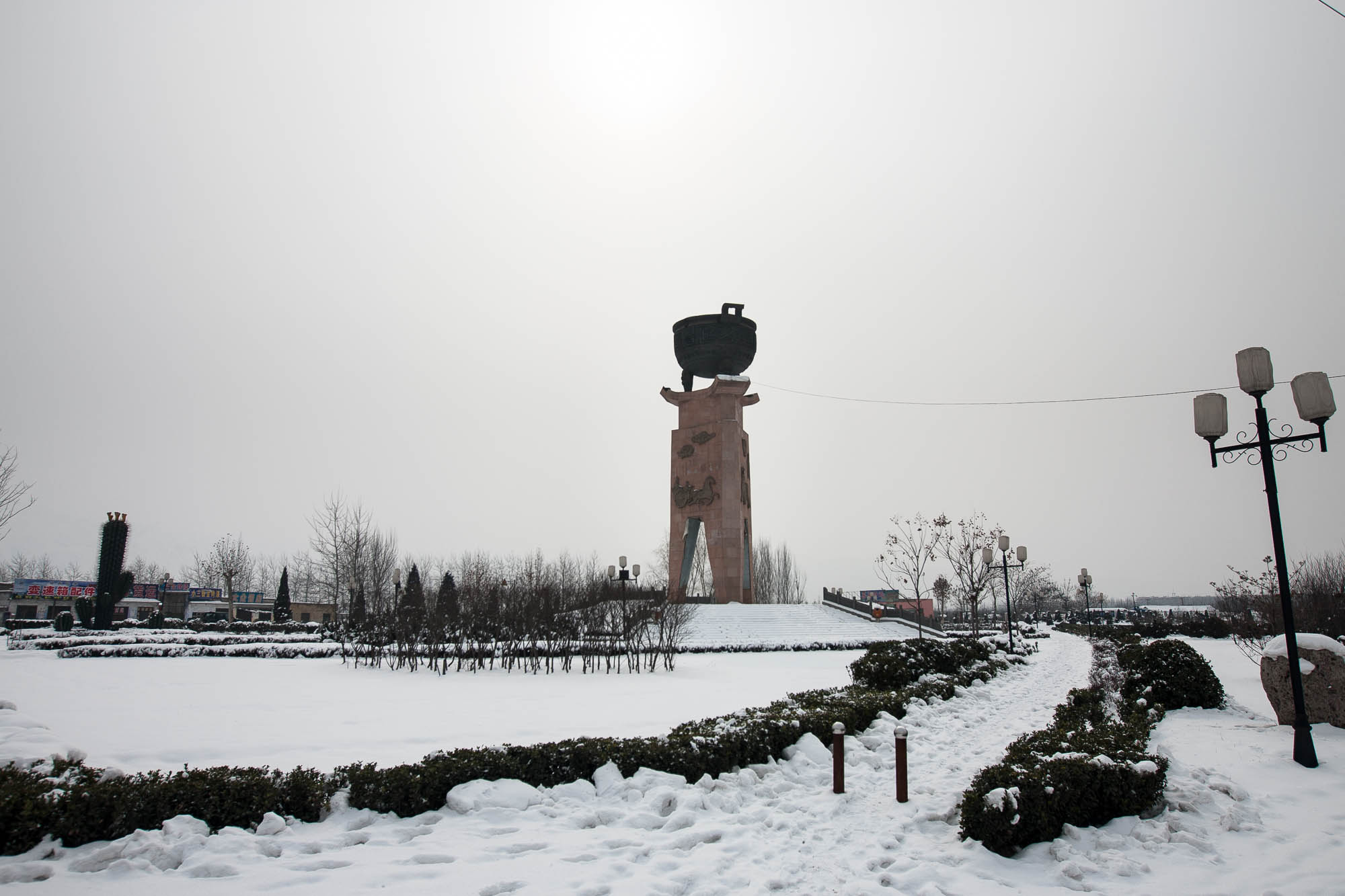
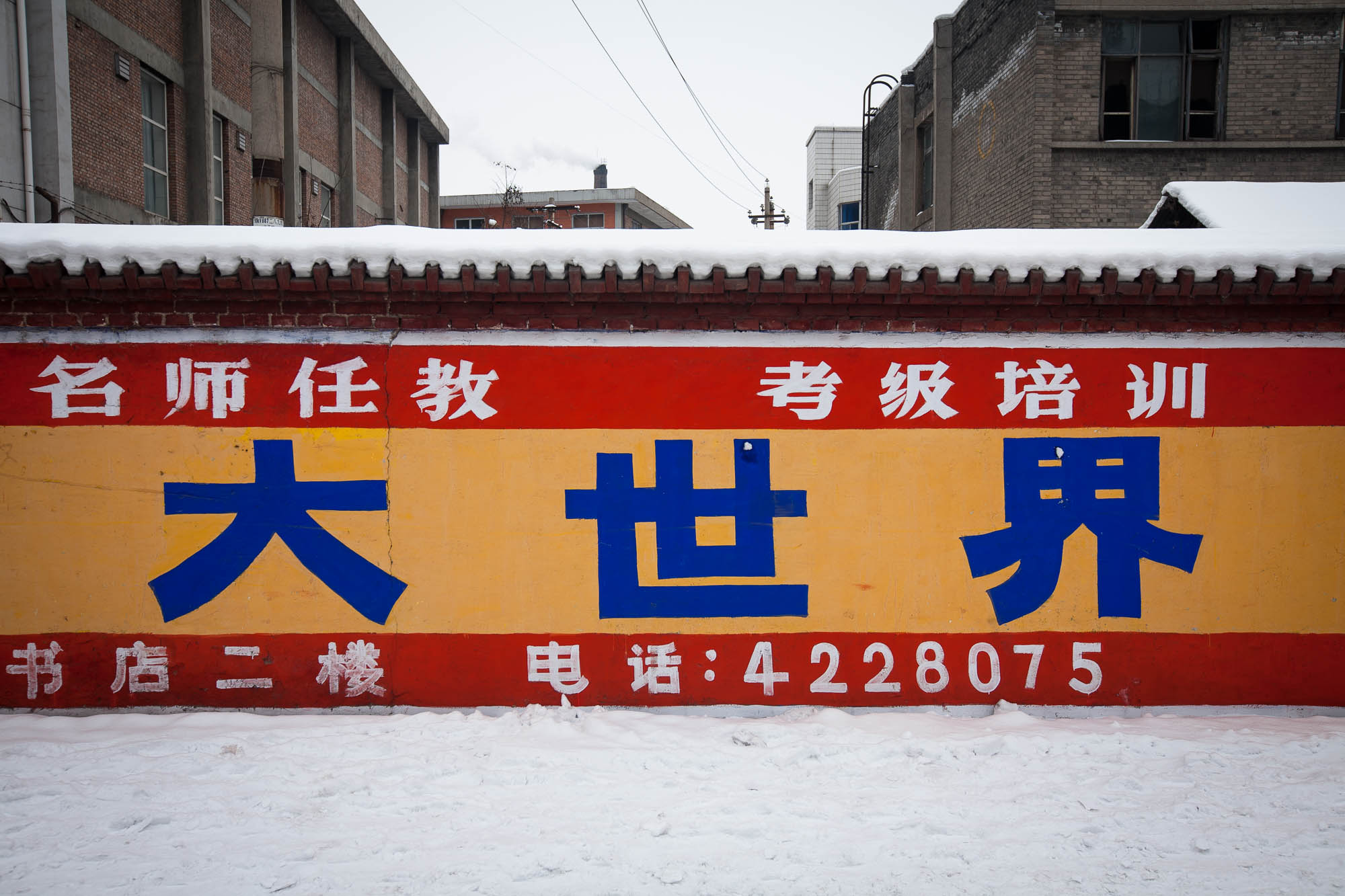
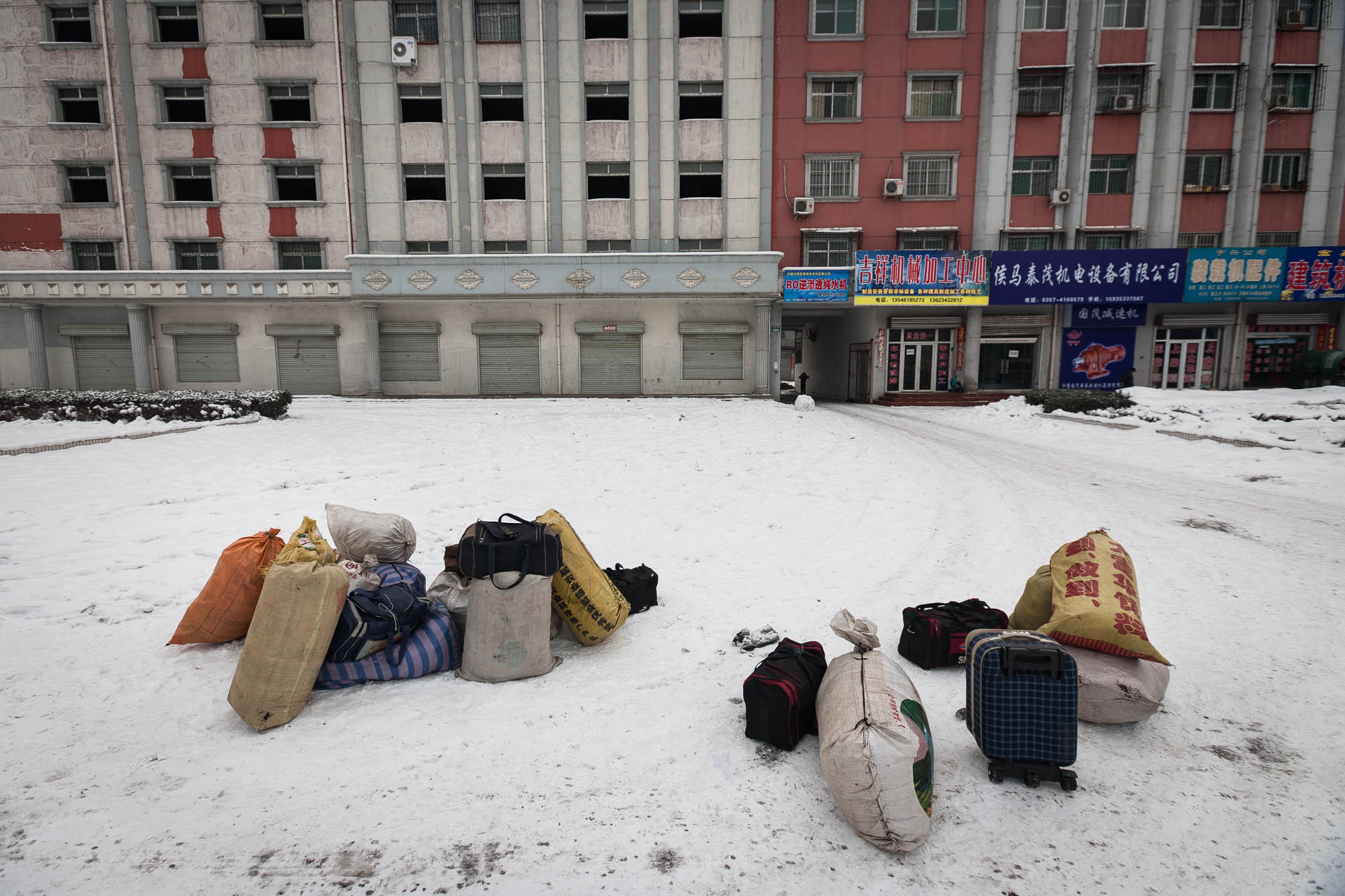
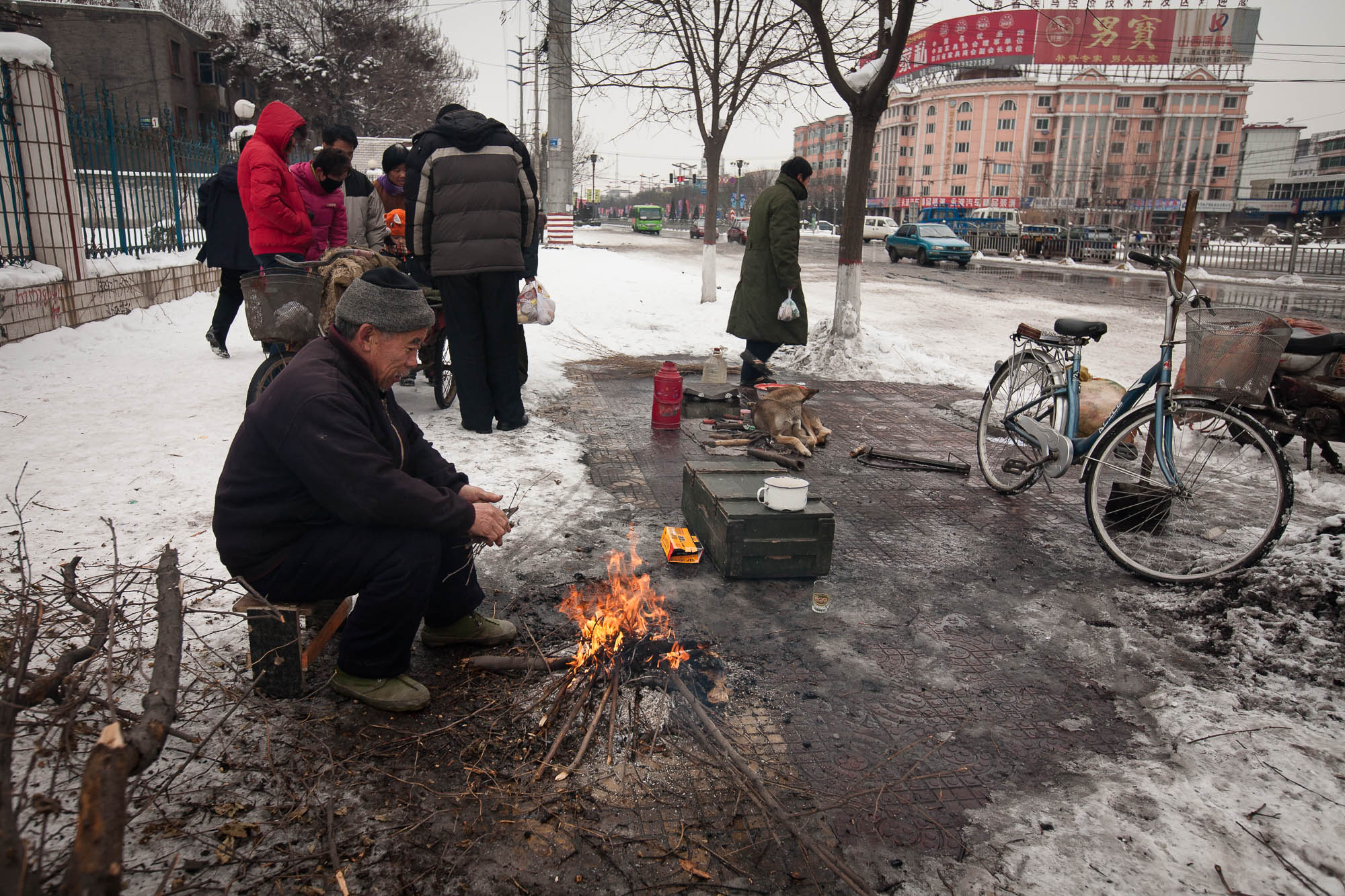
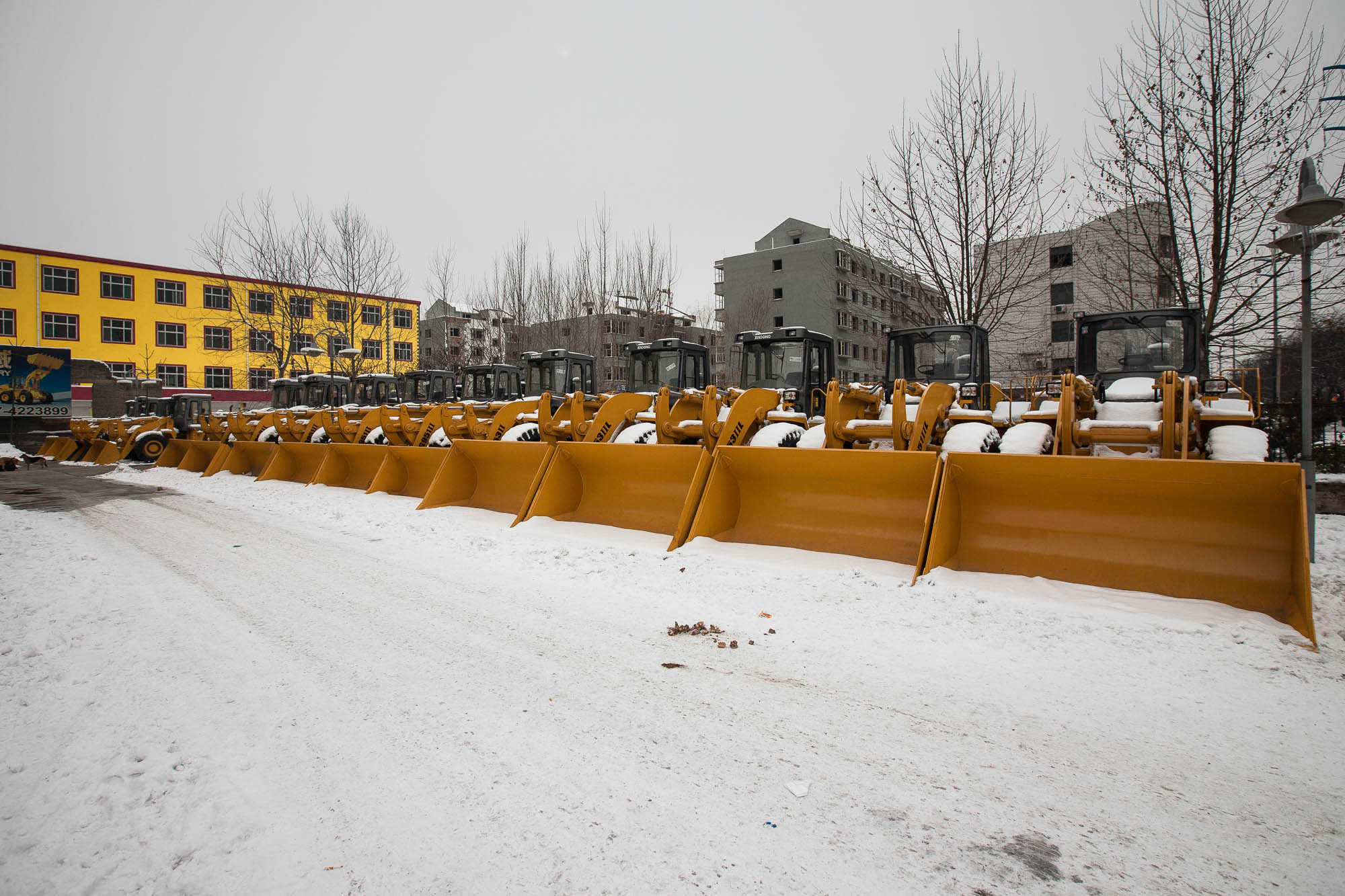
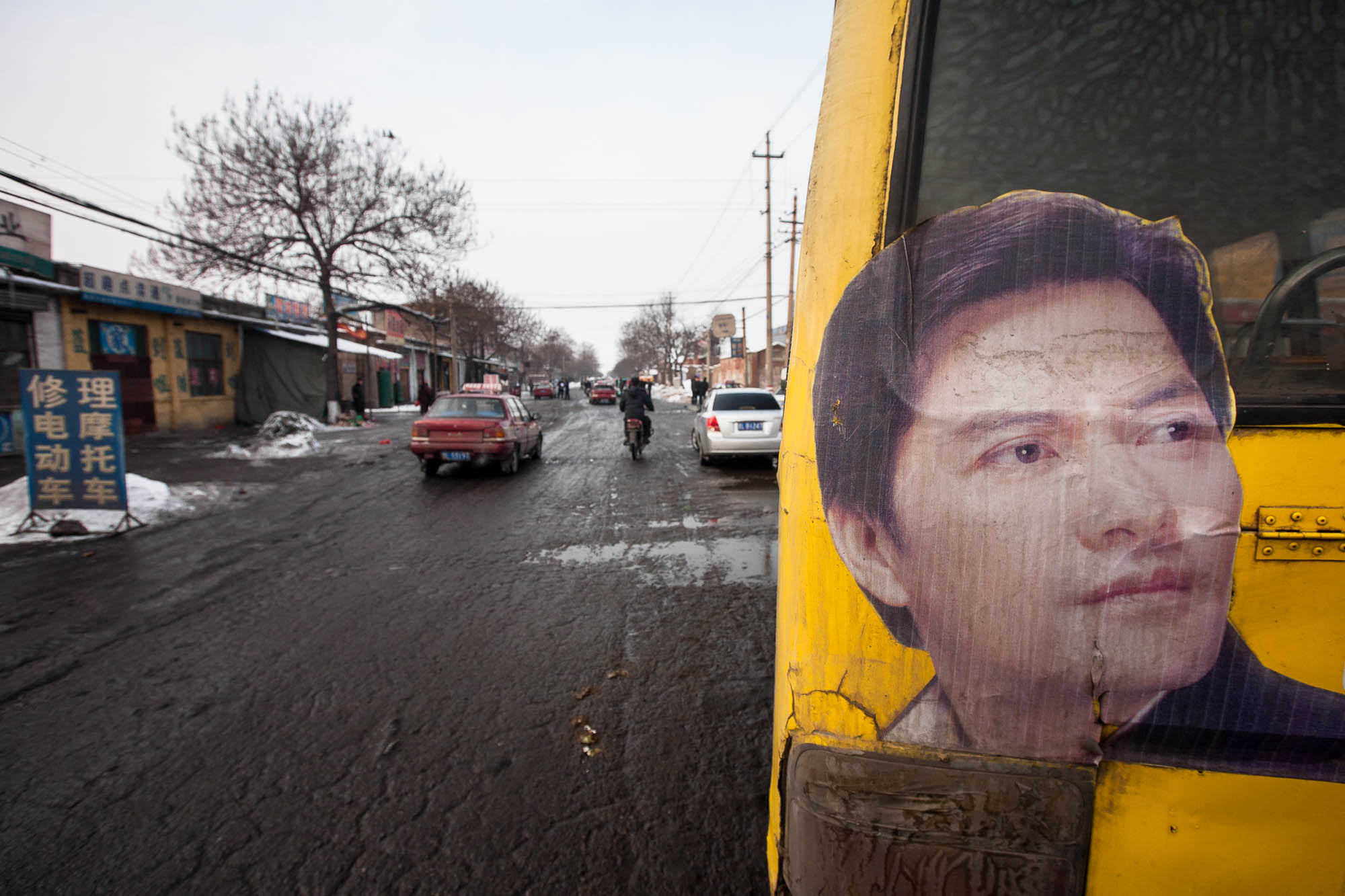
Rubi
ulli (unsere) grüßt dich.
sie schickt dir immer sms, aber bekommt nie antworten, das macht sie traurig.
gerade wuselt ulli durch mein zimmer und schreit: "rubäääään!" und dabei brumft sie wie ein elch in der paarungszeit.
also, schöne grüße von ihr
Christoph
Oh, sag Ulli mal sorry, ich habe die deutsche Karte fast nie im Handy, aber sie kann mir ja auch mal was hier schreiben! 🙂
rindy
鼎有好多种呢,三角鼎、方鼎
看来你对每个城市的功课做的都不错啊
学了不少东西
Jerry Wu
Just finished your book about walking in China,I really love it. And now I am starting to read over ur blogs, really enjoying it!
Rainer
Hi Chris,
Du läufst in einer lucky happiness, wunderbar!
Kaitlyn
“Happy go lucky” might be a good translation maybe 🙂